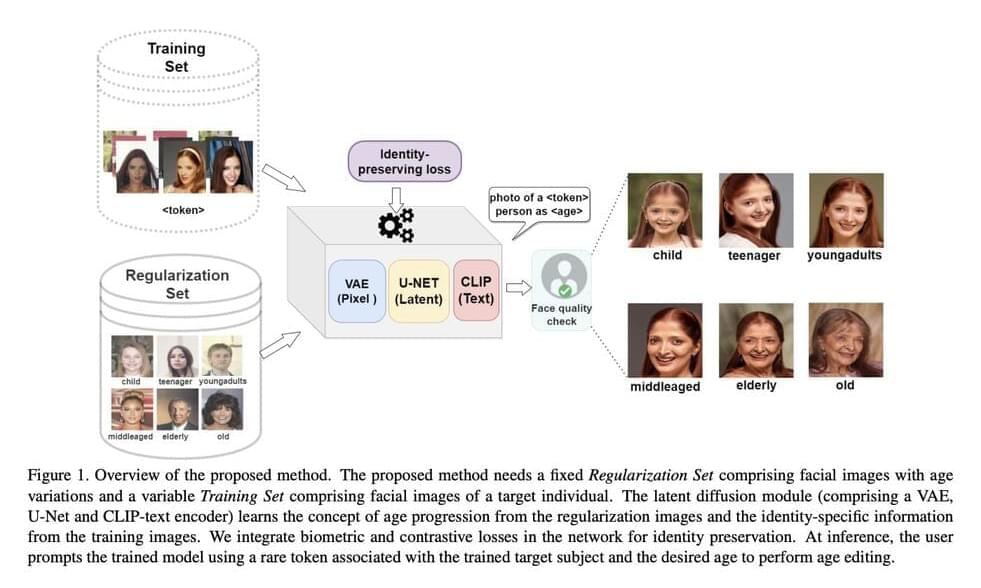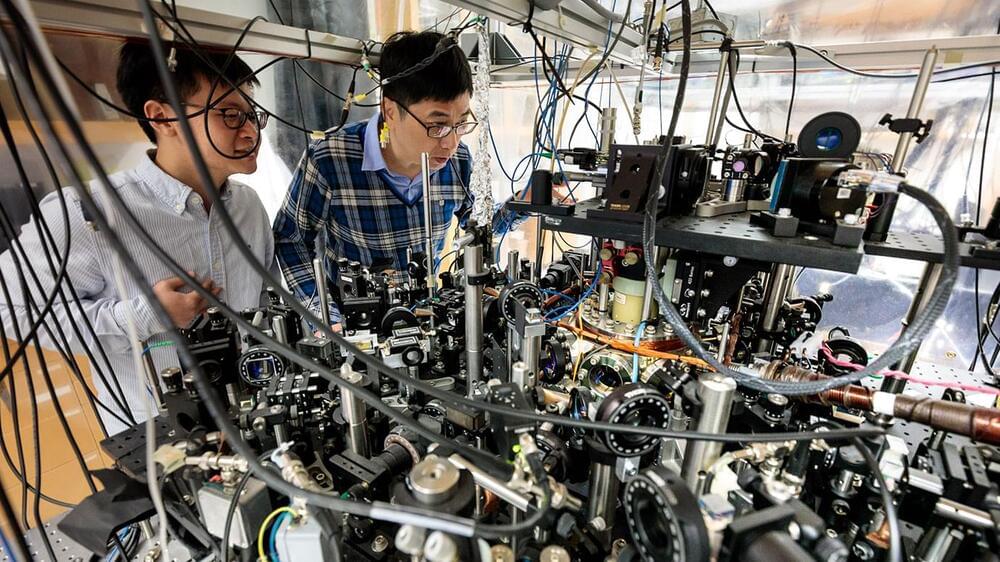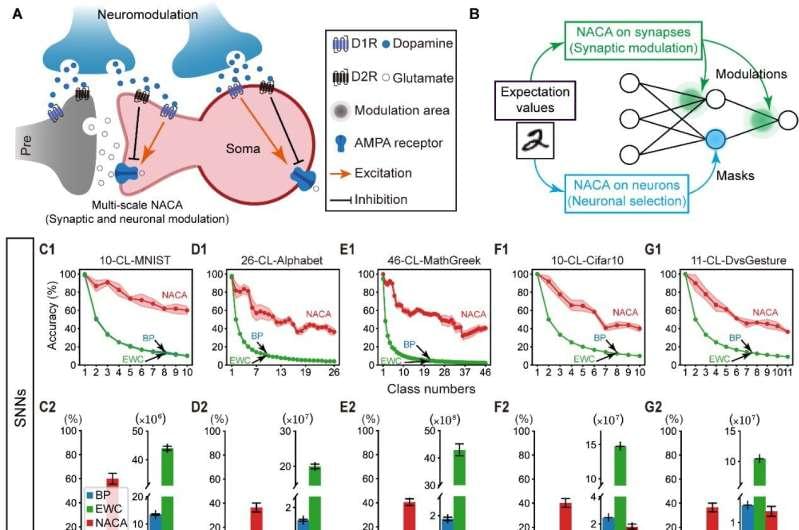Sep 2, 2023
NYU Researchers Developed a New Artificial Intelligence Technique to Change a Person’s Apparent Age in Images while Maintaining their Unique Identifying Features
Posted by Genevieve Klien in categories: life extension, privacy, robotics/AI
AI systems are increasingly being employed to accurately estimate and modify the ages of individuals using image analysis. Building models that are robust to aging variations requires a lot of data and high-quality longitudinal datasets, which are datasets containing images of a large number of individuals collected over several years.
Numerous AI models have been designed to perform such tasks; however, many encounter challenges when effectively manipulating the age attribute while preserving the individual’s facial identity. These systems face the typical challenge of assembling a large set of training data consisting of images that show individual people over many years.
The researchers at NYU Tandon School of Engineering have developed a new artificial intelligence technique to change a person’s apparent age in images while ensuring the preservation of the individual’s unique biometric identity.


















